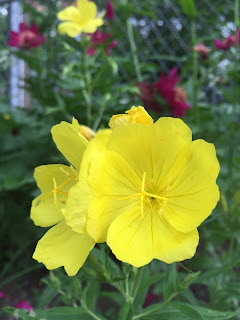"Ultimately, the problem here is not that people are eager to read Robin DiAngelo’s White Fragility per se but that way too many newcomers to the racial justice movement fail to take the rest of the Black intellectual work as seriously. When white race scholars are revered and seen as exceptional, well-intentioned white Americans risk reading a trendy book by a white expert and not picking up a book by an established Black author at all."
I do see a few people on social media asking us not to read or recommend the book, but most of the messages suggest not reading this one book by a white author INSTEAD OF books by Black scholars who have been studying race and whiteness for decades. We cannot ignore the race work of Black scholars.
For me, White Fragility was an important book. It was a book that helped me see my place in all of this and begin to recognize and change my responses and actions. It may not have been the book, but it may have been the facilitated conversations I had around the book that was important. One important conversation was facilitated by Dr. Laura Jiminez at a Highlights Foundation workshop last summer. So I am not sure if it was the book or the conversations around the book. All I know is that it was one of many books that has been important to my own internal work.
After reading the concerns about the book over the weekend, I wanted to speak to other white women about our reading lives. I think as readers it is time we audit and change our reading lives. Until about 5-10 years ago, most of my reading was centered on white authors. I never really thought about it. I read books recommended by friends, books I noticed in bookstores and books that were reviewed in journals or that made it to a best seller list. What a limited reading life I had.
Then I audited my classroom library and committed to really paying attention to the authors I was bringing into the classroom. But that step alone did not change my life as a reader.
I've had to be honest with myself about a lot of things as a reader. Over the years I've asked myself the following questions:
- When I look at my reading, do I read mostly books written by white authors?
- Do I read adult fiction by authors of color?
- Is most of my professional reading centered on white authors and experts?
- Why are most of the books that appear in my social media feeds written by white writers? What does that tell me about my social media feeds? How can I change that?
- How much of my professional reading life am I committing to reading and learning from scholars of color?
- Where does reading about whiteness and anti-racism fit into my reading life?
- When I recommend books to others, are they mostly books by white authors because those are the books I know best?
- Who do I rely on for book recommendations?
- How committed am I to #ownvoices in my personal reading life?
These are just a few of the questions I've been asking myself and I hope others have been too. They are hard questions and I am not always happy with my honest reflections. Although White Fragility was an important book for me on my journey to learn about whiteness and racism, it was only one very small step on the journey.
I have been working hard over the last few years to unlearn much of what I understand about the world, I've tried to read a variety of authors and to put my trust into those scholars who have been doing this work for decades and decades. In the process I have realized all of the brilliance I have been missing as a reader. I have missed so much --not only in my professional reading but in the fiction books I read.
This is a stack of books from one of my bookshelves. Some have been read, some are waiting to be read, some have been read several times. I have this huge stack because after finding one book, I hear about others that seem too good not to add to my stack. My (reading) life is richer because of this. Sadly, I had no idea what I was missing. But what I find is that one book leads me to another which leads me to another which leads me to a new-to-me favorite author, which leads me to new book reviews on Instagram which leads me to more books......
This is a stack of books from one of my bookshelves. Some have been read, some are waiting to be read, some have been read several times. I have this huge stack because after finding one book, I hear about others that seem too good not to add to my stack. My (reading) life is richer because of this. Sadly, I had no idea what I was missing. But what I find is that one book leads me to another which leads me to another which leads me to a new-to-me favorite author, which leads me to new book reviews on Instagram which leads me to more books......
I may change my thoughts about White Fragility. I certainly understand the worries and the criticism and I am going to continue to reflect on those. One thing I know for sure is that it cannot stand alone.













